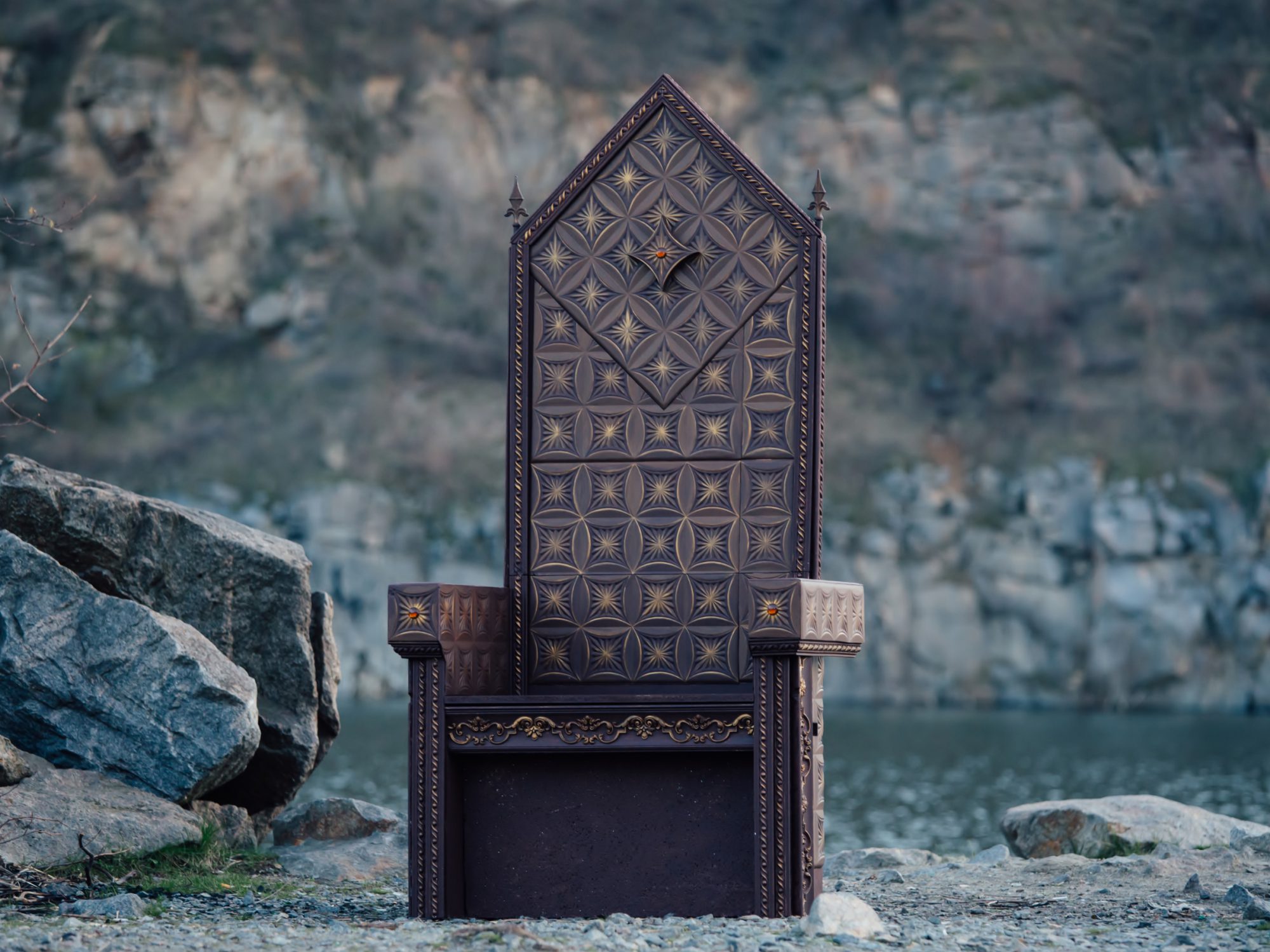David began his life in obscurity as a shepherd in Bethlehem, the youngest of eight brothers. But God was with him, and after he defeated Goliath, the champion of Israel’s enemies, everybody knew who David was. God’s people had a hero.
Of course, that wasn’t the way King Saul saw it! When the ancient equivalent of cheerleaders started singing, “Saul has slain his thousands, and David his tens of thousands” (1 Samuel 18:7), it nearly drove Saul crazy. David had to flee for his life, but God’s hand was on him. And when Saul died, David was crowned as king.
David’s first move was to march on Jerusalem. Although God’s people had been in the land for over three hundred years, they had not occupied that great city. David captured Jerusalem and established his palace and center of government there (2 Samuel 5).
Raiders of the Lost Ark
Then David brought the ark of the covenant to Jerusalem (2 Samuel 6). It was a day of great celebration. When God’s people were in the desert, God’s visible presence had come down to the ark. But during the reign of King Saul, the ark had been placed in storage and completely forgotten. That tells you something about the spiritual life of the nation at the time.
David wanted the symbol of the presence of God to be at the center of national life, so he brought the ark to Jerusalem. He was living in a magnificent palace, and it seemed inappropriate to him that the ark, where God made Himself at home, should be covered by canvas.
The king wanted to build a temple to house the ark, but God had other plans, which He announced to David through the prophet Nathan. David wanted to do something impressive for God, but God was preparing to do something spectacular for David—and for the whole human race.
A Spectacular Promise
“I will raise up your offspring to succeed you… and I will establish his kingdom,” God said. “He is the one who will build a house for my Name, and I will establish the throne of his kingdom forever. I will be his father, and he will be my son” (2 Samuel 7:12–14).
David was overwhelmed by the weight and glory of these promises. It was easy to understand that his son would build a temple, but how could a son of David be described as God’s son? And how could any king’s reign last forever? God was promising to do something that was beyond David’s wildest imagination.
The whole story is about how God’s blessing would come to all people. God had already promised that His blessing would come through a descendant of Abraham. Now, a thousand years later, God was making it clear that it would come through a king descended from the line of David. This promise narrows the search for the person who would be instrumental in fulfilling the promises of God.
Unparalleled Blessing
David became king about a thousand years before the birth of Christ, and he reigned for forty years (2 Samuel 5:4). During that time, God’s people enjoyed unparalleled blessing. Under David’s strong leadership, Israel’s enemies were subdued, and her borders were secured. With strong defense, a thriving economy, and stable leadership, God’s people had never had it so good.
Solomon’s Temple
After David died, God’s blessing continued through the reign of his son Solomon, who set about fulfilling his father’s plans for a temple in Jerusalem. It was a massive construction project involving 30,000 men felling timber in Lebanon, 80,000 stonecutters, 70,000 carriers, and 3,300 foremen working in the quarries (1 Kings 5:13–16).
Solomon paid particular attention to the inner area of the temple. In the old tabernacle, the Most Holy Place had been screened off by a curtain, but in the new temple, it was an unlit room about thirty feet square and thirty feet high. It was a perfect cube (6:20).
Solomon placed two massive sculptures of angelic figures, called cherubim, in the Most Holy Place (6:23–28). The wingspan of these cherubim covered the entire room, indicating the separation of man from God.
When the building was complete, God’s people gathered for a service of dedication. The priests brought the Ark of the Covenant into the temple and put it in the Most Holy Place, beneath the wings of the cherubim (8:6).
When the priests withdrew, a remarkable thing happened. The cloud of God’s glorious presence filled the temple (8:10–11). The last time God had shown the glory of His presence in a visible way like this was in the desert more than four hundred years earlier. Now the same God whose glory had come down and rested on the ark had come to Solomon’s temple. Solomon’s first response was to worship. God’s presence was with His people. At last there was a place on earth where God’s presence could be known (8:29).
A View from the Fourth Mountain
Solomon reigned for forty years. He became famous for his wisdom, and royal visitors came from all over the world to admire his achievements. He accumulated massive wealth, and during his reign, Israel became the envy of the world. God’s people were on the mountaintop in the days of David and Solomon.
Sadly, in his later years, Solomon, who had been known for his unusual wisdom, made some foolish mistakes. With all his attention focused on Jerusalem in the south, he alienated people in the north, planting the seeds of future division.
Solomon’s international celebrity status was the root of his downfall. He disobeyed the Lord by marrying many women who worshiped other gods (1 Kings 11:1). They persuaded him to build places of worship for their gods, and by the end of his reign, idolatry had taken root among God’s people. It was the beginning of another long dark valley.


